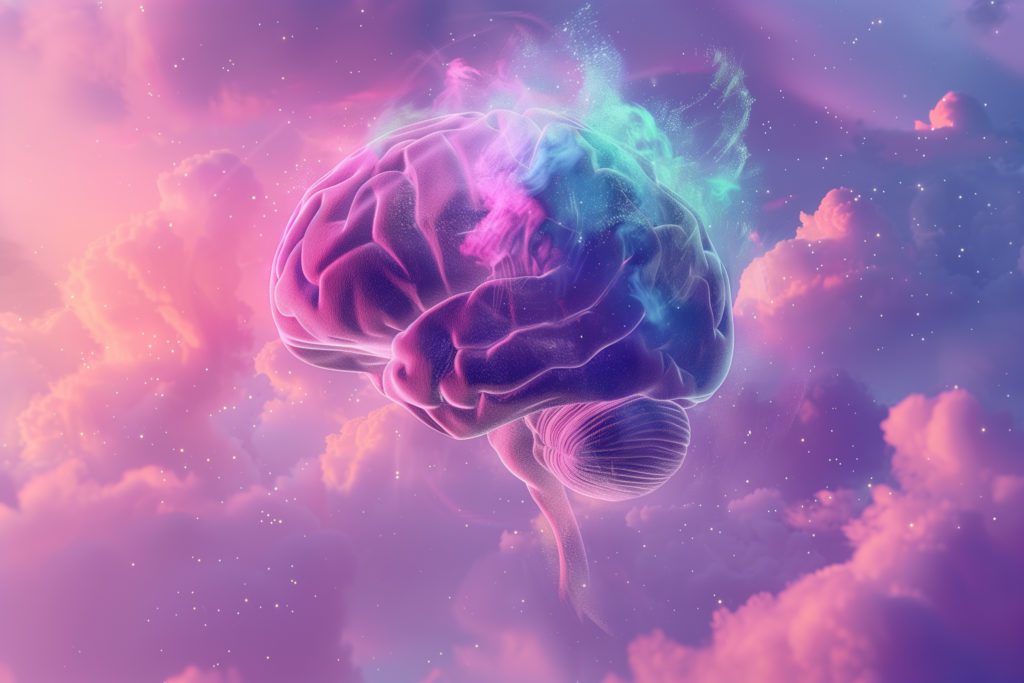
Are Dreams Meaningless? What Research Tells Us
Have you ever had a dream that left you scratching your head in the morning, wondering what it could mean?

Perhaps you’ve awoken wondering why someone you haven’t talked to in years played a starring role in your dream—is there a meaning for this, or can it all be brushed aside as odd visions from your subconscious?
Through the years, dreams have had different meanings depending on culture and religion. Ancient Greeks thought of dreams as visitations by the dead and predictions of future events. Ancient Egyptians believed that dreams offered a different way to see, and dreamers even helped to plan battles. Famously, Sigmund Freud, the psychologist, believed that dreams were an expression of repressed conflicts or desires.
Dreams have been studied extensively yet are still frequently misunderstood. Nevertheless, it’s interesting to see what science has to say about our dreams, and if they’re worth interpreting.
The Science Behind Dreams
Using the latest imaging equipment, such as MRIs and PET scans, scientists can better observe what goes on in the brain while we’re sleeping and, more importantly, while we’re dreaming.
We Dream to Process Information
The long-standing theory within the scientific community is that dreams occur when your brain has a data dump, clearing out the useless memories from the day and storing the valuable ones.
A 2007 study helped to confirm this theory, with the researchers finding that the neocortex (the part of the brain that governs higher-order thought) fires during sleep and signals to the hippocampus (which controls memory) to upload the information it is holding on to. This then clears out the hippocampus so that it can store more information the next day.
The presumption is that, as the neocortex sorts through all the uploaded information, the mind grasps onto bits and pieces of what it sees, which can then appear in a dream. However, the memory itself doesn’t usually appear in its entirety—it’s more likely for the emotions, challenges, or people from your memories to make an appearance.
We Dream to Solve Problems
Dreaming may be your brain’s way to continue working on jobs that the waking mind worked on during the day.
In a 2010 study, 99 people were tasked with navigating through a three-dimensional maze. In the middle of their practice session, they were given a 90-minute break. Some participants were asked to complete quiet activities during the break, such as reading, while others were told to try taking a nap. Those who napped and dreamed about the maze had a ten-fold improvement on the task the next session compared to the other participants.
So, if you have a problem that you can’t solve, the advice to “sleep on it” may hold some merit.
We Dream to Prepare
Dreams may be your mind’s way of preparing for possible future threats, offering a safe space for your mind to rehearse the cognitive mechanisms needed to recognize and avoid threats. Even more, if you experience a threatening experience in real life, your dreams will feature more threatening events to increase the threat simulation response.
This theory comes from an analysis of reports on severely traumatized, less traumatized, and non-traumatized children. The study found that children who were severely traumatized had more dreams with threatening dream events.
This interpretation of dreams supports other ideas that dreams are a unique state of consciousness incorporating processing of the past, experiences of the present, and preparations for the future.
Diving into Dream Themes
In 1984, Francis Crick wrote that “we dream to forget.” Psychologists often disagree, though. In fact, many individuals find great value in reflecting on and analyzing their dreams. This is because if dreaming occurs when the brain is sorting through what it went through during the day, dreams can bring up information that we might otherwise suppress.
Some dreams are universal, such as failing to study for an exam (long after you’re in college or high school) or showing up at school with no clothes on. While these dreams have no clear meaning, psychologists have some speculations about what they can mean. Take these interpretations as only a suggestion, though, because interpretations primarily depend on you and what you associate with each element.
Dreaming About Death
While not a pleasant subject for our dreams, dreaming about death is common, especially the death of someone you’re close to.
Just like death is the end of life, in a dream, death can represent the end of something. If you’re moving, leaving a relationship, or changing your career, death may be a part of your dreams.
Dreaming About the Elements
There are some commonly held associations about the different elements. For example, water is thought to symbolize emotions, and the different types of water can mimic different emotions. So, consider if the water is clear, murky, deep, or rough.
Wind often represents change, whether an upcoming change or one you’re currently going through. Fire, on the other hand, relates to distress or anger.
Dreaming About Being Late
Along with showing up to school naked or failing a test, these dreams are centered on social concerns and a fear of embarrassment. You may never forget your clothes or no longer have to take an exam in real life, but we still face stressful situations and fear of not doing well enough, which may manifest as these types of dreams.
A Dream’s Meaning Depends on You
If you were to jot down every dream you ever have, you could probably spend hours trying to determine the meaning of each one, and the truth is, sometimes there is no meaning behind a dream.
Science shows that during the night, our brain sorts through the day’s memories, and researchers speculate that sometimes the brain will snatch onto one piece of memory and incorporate it into a dream. So, a dream may be your brain processing what you go through during the day, but it may also be nothing of significance.
There’s no way to know for sure, but sometimes, even if there is no meaning behind our dreams, analyzing them may help you work through whatever you’re going through in life. Occasionally, your dreams may even be your way of processing what is too unsettling when you’re awake.
In the end, whether or not a dream has any meaning depends on if you want to assign a meaning to it.
FAQ
What is lucid dreaming, and is it real?
Lucid dreaming occurs when individuals become aware they are dreaming and can sometimes control the dream's content. Scientific studies have confirmed the existence of lucid dreaming, and techniques exist to help induce this state.
What are the stages of sleep, and how do they influence dreaming?
Dreaming occurs predominantly during the REM (Rapid Eye Movement) stage of sleep, but dreams can also arise during non-REM stages. Understanding these stages helps explain the variations in dream intensity and recall.
How does stress or trauma affect dreaming?
Stress and trauma can significantly influence dream content, often leading to vivid, intense, or recurring nightmares. These dreams may serve as the mind's mechanism for processing and coping with distressing experiences.
Can external stimuli influence the content of dreams?
Yes, sounds, smells, or sensations in the sleeping environment can be incorporated into dreams, altering their narrative or tone.
Why do dreams sometimes feel so real?
Dreams can feel real due to the brain's activation of sensory, emotional, and memory-related areas during sleep, creating vivid, immersive experiences.

Written by
Jessica G
Medical writer freelancer who has written hundreds of articles on varying topics. Masters of Engineering degree in Biomedical Engineering.
Download Pillow
Get help
Press & News
Legal
Connect
X (Twitter)
Company
Copyright © Neybox Digital Ltd.



